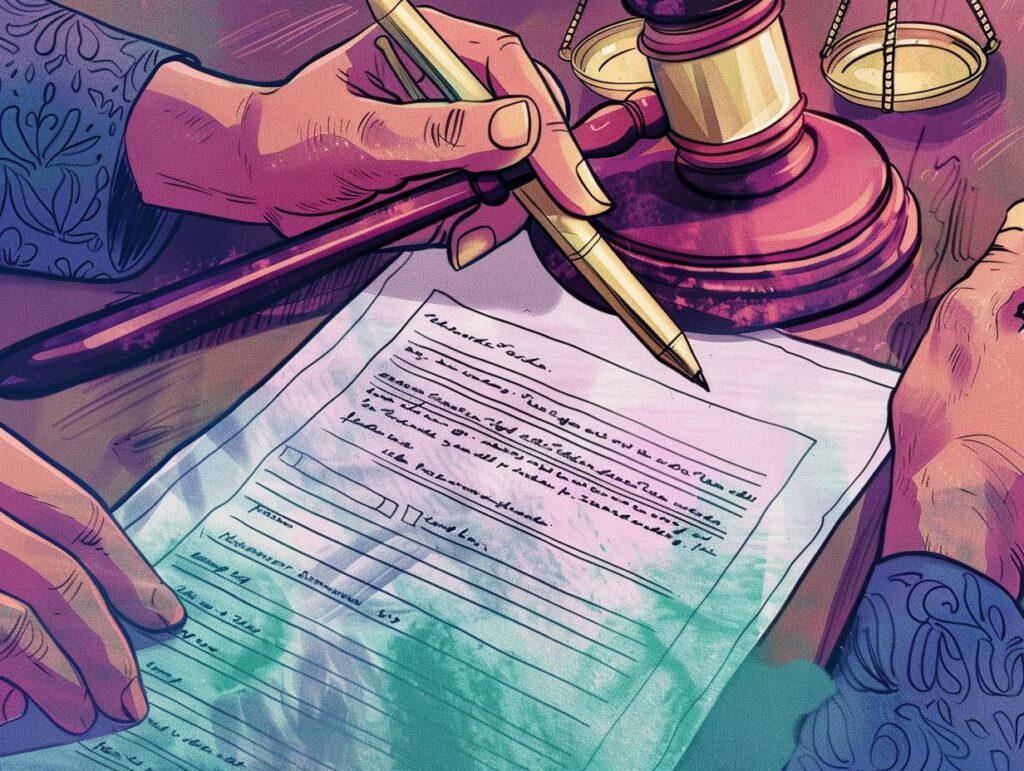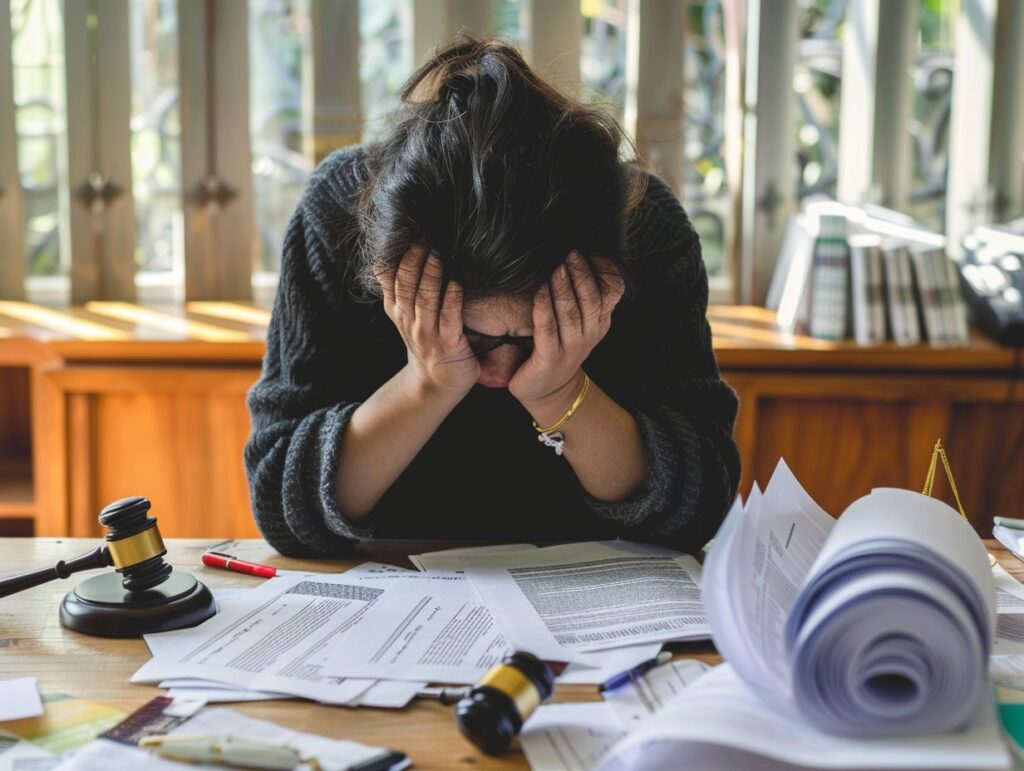Filing a lawsuit in Florida can be a complex and intimidating process. There are many steps involved, from understanding the types of cases that can be filed to preparing your lawsuit and going to court.
In this article, we will break down the requirements for filing a lawsuit in Florida, what documents you need, how to choose the right court, and the statute of limitations. We will also discuss how to determine the amount to sue for, gather evidence, and serve the defendant.
After filing your lawsuit, we will cover what to expect during a pretrial conference, at trial, and after the trial. We will also explore the process for appealing a court decision in Florida. Whether you are considering filing a lawsuit or are already involved in one, this article will provide valuable information on navigating the legal system in Florida.
Key Takeaways:

- Understand the types of cases that can be filed in Florida and the steps involved in a lawsuit.
- Meet the requirements and gather necessary documents to file a lawsuit in Florida. Choose the appropriate court and be aware of the statute of limitations.
- Determine the amount to sue for, gather evidence, and properly serve the defendant. Understand the process of going to court and appealing a court decision in Florida.
Filing a Lawsuit in Florida
Initiating a legal action in Florida requires compliance with particular legal procedures, such as accurately filling out forms, paying required fees, and submitting to the suitable court, whether it is a district court or a circuit court.
What are the Requirements for Filing a Lawsuit in Florida?
The requirements for filing a lawsuit in Florida include completing the necessary forms, paying the applicable fees, and ensuring the case is filed within the appropriate jurisdiction.
It is crucial to provide all relevant documentation to support your claims when initiating a lawsuit. This may involve gathering evidence, such as contracts, emails, or photographs, that substantiate your legal position. It’s also essential to adhere to specific fee structures set by the court, as failure to do so can result in delays or even dismissal of the case.
Correctly selecting the jurisdiction where the lawsuit should be filed is paramount, as filing in the wrong jurisdiction can lead to legal complications and wasted time. Properly completing all necessary forms is equally vital to ensure the legal process runs smoothly and efficiently.
What Documents Do You Need to File a Lawsuit in Florida?

In Florida, filing a lawsuit involves submitting various documents to the clerk of court. These documents typically include a complaint form, summons, and any supporting affidavits.
The complaint form serves as the initial document outlining the legal grounds for the lawsuit, followed by the summons that officially notifies the defendant of the legal action. Supporting affidavits provide additional evidence or relevant facts for the case. Accuracy and completion of these documents are crucial to avoid delays or potential dismissal of the case.
Once these documents are submitted, the clerk plays a critical role in processing them, entering them into the court’s system, and issuing necessary notifications to all involved parties.
How Do You Choose the Right Court to File Your Lawsuit?
Selecting the appropriate court to file a lawsuit entails comprehending the jurisdictional boundaries and categorizing whether the case belongs to the district court or the circuit court in accordance with Florida statutes.
District courts, referred to as trial courts, typically serve as the origin for cases with limited jurisdiction, addressing smaller claims or less severe offenses. In contrast, circuit courts operate as courts of general jurisdiction, presiding over more serious criminal cases and larger civil cases.
It is essential to evaluate the nature and extent of the case when determining the suitable court for filing to ensure alignment with the court’s jurisdiction, thereby preventing delays and potential legal issues.
What is the Statute of Limitations for Filing a Lawsuit in Florida?
The statute of limitations for filing a lawsuit in Florida varies depending on the type of case, with each category governed by specific statutes that dictate the timeframe within which a case must be filed.
For example, personal injury cases in Florida typically have a statute of limitations of four years, while breach of oral contract cases have a limitation period of four years as well. On the other hand, the statute of limitations for medical malpractice cases is generally two years from the date of the injury or discovery.
It is crucial to adhere to these deadlines, as missing them can have serious legal consequences, such as the dismissal of your case and being barred from seeking legal recourse.
Preparing Your Lawsuit
Effective preparation for a lawsuit includes collecting all required evidence, organizing documents, and comprehending legal procedures, regardless of whether you are representing yourself or have the support of a lawyer.
How Do You Determine the Amount to Sue For?
Determining the amount to sue for involves calculating the total damages incurred, including both economic and non-economic losses, which must be substantiated with credible evidence in the case. To calculate economic losses, one can look at tangible costs such as medical bills, property damage, and lost wages.
On the other hand, non-economic losses, like pain and suffering or emotional distress, are more challenging to quantify. An important aspect of justifying the claim amount is gathering evidence such as receipts, medical reports, and witness testimonies. Without proper documentation, it becomes difficult to prove the extent of the damages suffered and can weaken the case during negotiations or in court.
What Evidence Do You Need to Support Your Lawsuit?
To support a lawsuit effectively, it is important to gather strong evidence, which may include documents, witness testimonies, and other relevant materials that can substantiate the claims made in court. Documents serve as essential evidence in legal proceedings by providing concrete proof of events, transactions, or agreements. Witness statements offer firsthand accounts of incidents or observations, offering a personal perspective on the case.
It is crucial to organize evidence in a clear and effective manner to ensure its admissibility in court, as poorly presented evidence may be deemed irrelevant or inadmissible by a judge. Presenting evidence logically and persuasively can help strengthen a case and improve the chances of a favorable outcome.
How Do You Serve the Defendant with the Lawsuit?
Serving the defendant with the lawsuit involves delivering the complaint and summons through a legal process that ensures the defendant is formally notified of the legal action against them.
This process is crucial in upholding the defendant’s right to due process and giving them the opportunity to respond to the allegations. Proper service helps establish jurisdiction for the court to hear the case and ensures that the legal proceedings are conducted fairly.
Methods of delivery can include personal service, where the documents are handed to the defendant directly, or substituted service if the defendant is difficult to locate. Certified mail or publication in a newspaper may also be used in certain circumstances, always following specific rules to ensure effective service.
Going to Court

The legal process of going to court consists of various essential stages, such as pretrial conferences, hearings, and the trial itself. These proceedings are overseen by a judge or magistrate judge who ensures that the process follows legal standards.
What Happens After You File Your Lawsuit?
After a lawsuit is filed, the court will send a notice to the defendant, and the case will progress through a series of procedural steps, including discovery and pretrial motions.
The purpose of the notice is to notify the defendant of the legal action against them and give them a chance to respond. During the discovery phase that follows, both parties can collect evidence and information relevant to the case.
Pretrial motions, like motions to dismiss or motions for summary judgment, may be submitted to address legal matters before the trial itself. These steps are essential for ensuring a fair and efficient legal process, helping to clarify the disputed issues, and ultimately leading to a resolution of the case.
What Happens During a Pretrial Conference?
During a pretrial conference, the judge and the parties involved discuss the issues of the case, explore settlement possibilities, and establish a timeline for the trial process. It is a crucial stage in the legal process where the judge may address any preliminary motions, identify key evidences, and facilitate communication between the opposing parties to streamline the upcoming trial proceedings.
The judge’s role is pivotal in ensuring that both sides understand the legal parameters of the case, encouraging transparency, and may even provide guidance on potential areas of compromise. This stage allows for a more efficient and focused trial preparation process, increasing the chances of a fair and timely resolution.
What Happens at a Trial?
During a trial, both parties present their evidence and arguments in front of a judge and potentially a jury. The judge and jury then deliberate and make a decision based on the facts and relevant law.
Throughout the trial, each side utilizes witness testimonies, physical evidence, and expert opinions to bolster their arguments. The lawyers offer legal interpretations of the evidence to sway the judge or jury in favor of their client’s innocence or guilt.
The judge impartially oversees the trial to ensure it follows legal procedures and regulations. Jurors, if involved, attentively consider the presented evidence, assess witness credibility, and adhere to the judge’s directions on the law.
Ultimately, the decision-making process involves evaluating the evidence and applying the law to reach a fair verdict.
What Happens After the Trial?
Following the trial, the court will render a judgment, and either party has the option to file an appeal if they are dissatisfied with the decision.
The issuance of a judgment signifies the official conclusion of the trial process. Once the judgment is handed down, the party wishing to appeal must follow specific procedures and adhere to set timelines. Typically, there is a limited timeframe for filing an appeal, typically ranging from 30 to 60 days based on the jurisdiction.
The party appealing must submit a formal notice of appeal to the relevant appellate court, detailing the grounds for the appeal and any legal arguments supporting it. The court will then assess the case to determine if there are valid reasons for granting the appeal and potentially conducting a new trial.
Appealing a Court Decision
Appealing a court decision in Florida requires submitting a notice of appeal and presenting legal arguments to an appellate court. The appellate court will review the trial court’s decision to identify any errors of law or procedure.
What is the Process for Appealing a Court Decision in Florida?
The process for appealing a court decision in Florida starts with filing a notice of appeal. This is followed by submitting written briefs to the appellate court. The appellate court will then review the case for legal errors.
After filing the notice of appeal, the next step involves organizing and preparing the written briefs. These briefs should include legal arguments supported by relevant case law and statutes. The appellant, the party appealing the decision, usually files an initial brief. The appellee, the opposing party, then has the chance to respond with their own brief.
Following the submission of the briefs, the appellate court may schedule oral arguments where each party presents their case in person. The appellate court’s responsibility is to review the trial court’s decision for legal errors and decide whether the decision should be upheld, reversed, or modified.
Frequently Asked Questions

What is the first step to filing a lawsuit in Florida?
The first step is to determine if your case falls within the jurisdiction of Florida courts. If it does, you can proceed with the filing process.
Can I file a lawsuit in Florida if I am not a resident of the state?
Yes, you can file a lawsuit in Florida even if you are not a resident. However, your case must have a connection to the state, such as a business transaction or an accident that occurred in Florida.
How do I find the correct court to file my lawsuit in Florida?
The correct court to file your lawsuit in Florida depends on the type of case you have. Small claims cases are filed in county courts, while civil cases are filed in circuit courts. You can also consult with an attorney for assistance.
What documents do I need to file with the court when initiating a lawsuit in Florida?
You will need to file a complaint, which outlines your legal claims and the relief you are seeking, along with any other required forms or documents specific to your case. These can vary depending on the type of case.
Is there a time limit for filing a lawsuit in Florida?
Yes, there is a statute of limitations for filing a lawsuit in Florida. This means that you must file your case within a certain time frame after the incident or discovery of the issue. It is important to consult with an attorney to determine the applicable time limit for your case.
Can I represent myself in a lawsuit in Florida?
Yes, you have the right to represent yourself in a lawsuit in Florida, but it is not recommended. Lawsuits can be complex and having an experienced attorney on your side can greatly increase your chances of success. Additionally, certain types of cases may require representation by an attorney.























Rate this article:
Average rating 5 / 5. Vote count: 1
No votes so far! Be the first to rate this post.
No Comments yet!